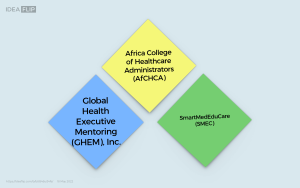Course Overview:
This course provides a foundational understanding of research methodology, critical thinking, and AI-assisted inquiry, with a focus on ethical and practical applications in healthcare administration. Designed for professionals and students pursuing certification through AfCHCA/GHEM, it ensures that learners can critically evaluate sources, leverage AI responsibly, and conduct high-quality research.
Learning Objectives:
By the end of this course, learners will be able to:
-
Differentiate between peer-reviewed and non-peer-reviewed sources.
-
Effectively utilize AI-powered research tools while recognizing their limitations.
-
Identify and mitigate biases in research.
-
Apply ethical standards in research and citation.
-
Conduct a structured literature review relevant to healthcare administration.
